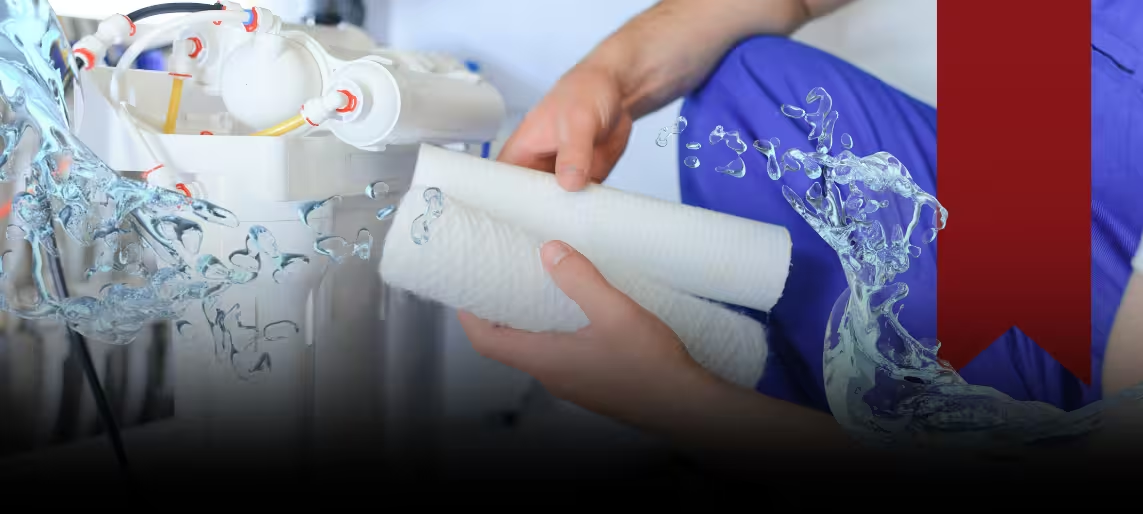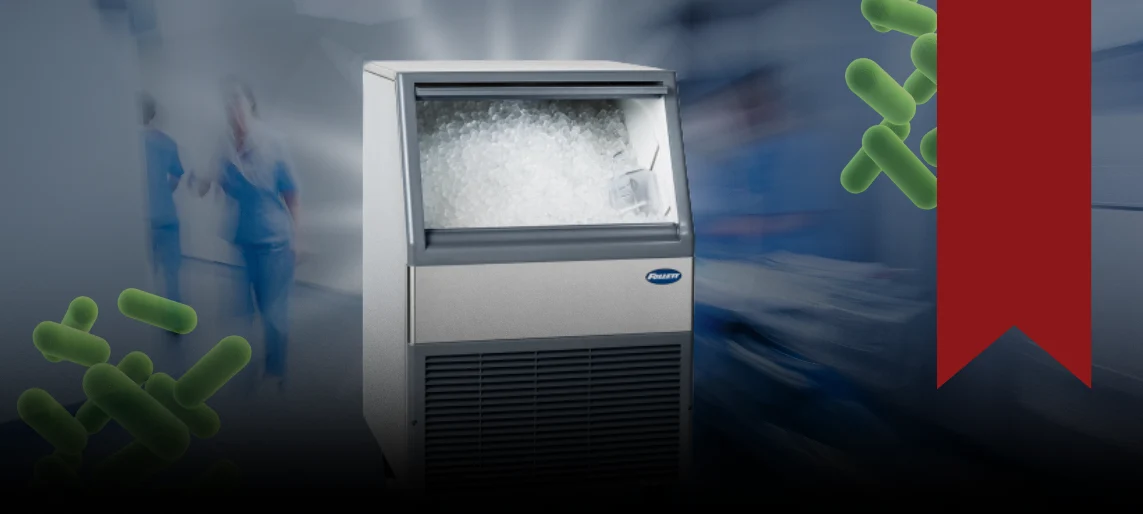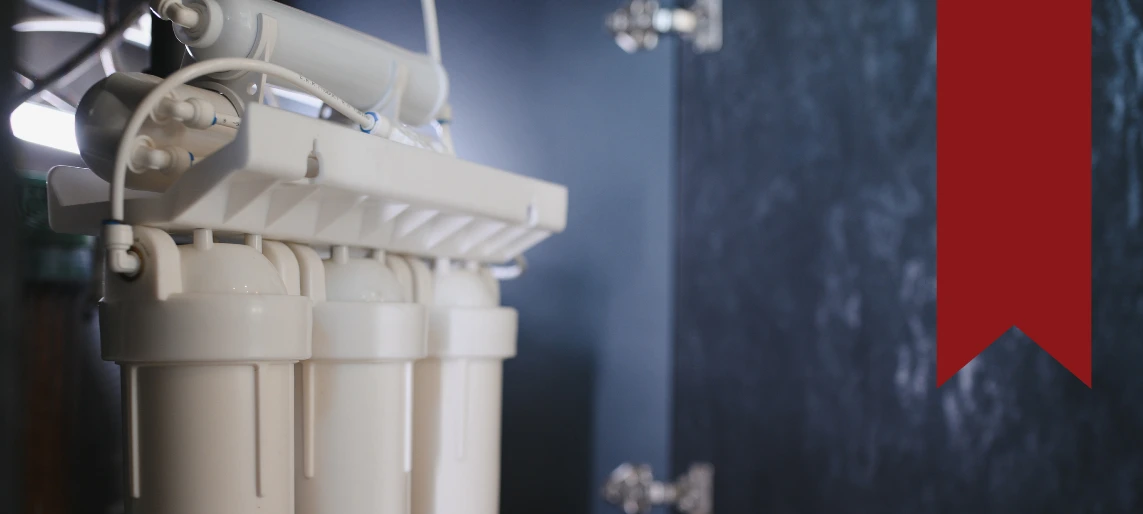
Summary
Learn the difference between nominal and absolute micron ratings, how staged filtration systems work, and why proper water filtration is critical for preventing scale, corrosion, and even bacteria like Legionella. Aldevra explains how filters help foodservice directors protect equipment and ensure safe, high-quality water for every application.
Why Micron Ratings Matter
Water runs through almost every piece of commercial kitchen equipment—from ice machines and combi ovens to beverage dispensers and dishwashers. Yet one of the most overlooked maintenance items is filtration quality.
The difference between a 1-micron nominal filter and a 0.5-micron absolute filter might seem small, but it can determine whether you’re simply reducing contaminants—or stopping them altogether. Understanding these ratings helps protect your investment, improve food and beverage quality, and reduce health risks.
What Is a Micron?
A micron is one-millionth of a meter—a unit so small that most particles it measures are invisible to the naked eye.
For context:
• Human hair: ~70 microns
• Grain of salt: ~100 microns
• Bacteria: 0.2–2 microns
So when a filter is rated at 0.5 microns, it can trap particles 140 times smaller than a single hair.
Nominal vs. Absolute Micron Ratings
Nominal Micron Rating
A nominal filter removes most, but not all, particles of a specified size—usually 85–95%.
• Example: A 5-micron nominal filter removes about 90% of particles 5 microns and larger.
• Best for: Pre-filtration or general sediment reduction.
Think of nominal filters as your first line of defense—ideal for catching larger debris and protecting finer filters downstream.
Absolute Micron Rating
An absolute filter removes 99.9% or more of particles at its rated size.
• Example: A 0.5-micron absolute filter removes nearly all particles 0.5 microns and larger.
• Best for: High-performance applications such as beverage dispensing, ice production, and steam cooking.
Absolute filters are built for precision, often using pleated or membrane materials to capture even microscopic contaminants.
The Power of a Staged Filtration System
The best protection for commercial kitchens doesn’t usually come from one filter—it comes from a staged (multi-stage) system, where each filter has a specific job.
Here’s how it works:
Stage 1: Sediment (Pre-Filter)
This is typically a nominal-rated filter that captures large particles like rust, sand, or sediment from pipes. Removing these prevents clogging and extends the life of finer filters.
• Typical rating: 5–10 microns nominal
Stage 2: Carbon Block or Chlorine Reduction
This stage removes chlorine, chloramine, taste, and odor, improving flavor and preventing corrosion in metal components.
• Typical rating: 1–5 microns nominal or absolute
Stage 3: Fine or Absolute Filtration (Microbial Control)
At this point, the system captures microorganisms and ultra-fine particles. Filters rated 0.2–0.5 microns absolute can remove Legionella, E. coli, and Cryptosporidium—critical for hospitals, VA facilities, and institutions.
• Typical rating: 0.2–1 micron absolute
Stage 4: Scale Inhibitor or Specialty Cartridge
In hard-water regions, a final cartridge adds scale inhibitors or antimicrobial protection. This helps prevent calcium buildup on heating elements and slows bacterial growth inside the filter itself.
• Media types: Polyphosphate, ion exchange resin, or silver-impregnated carbon
Why Bacteria Control Matters
Microbial contamination is more than a maintenance issue—it’s a health and safety concern.
• Legionella bacteria can grow in stagnant or warm water lines and cause Legionnaires’ disease, a serious respiratory illness.
• Biofilm buildup in unfiltered systems provides a breeding ground for harmful microorganisms.
High-efficiency filters like Everpure® with submicron absolute ratings help prevent bacteria from entering your equipment and ice, steam, or beverage water lines—protecting both staff and customers.
Equipment That Benefits Most from Filtration
Why a Multi-Stage System Is Worth the Investment
✔ Better Protection: Each stage filters out contaminants suited to its design.
✔ Longer Filter Life: Pre-filters prevent clogging in fine filters.
✔ Lower Costs: Replacing a low-cost sediment cartridge is cheaper than replacing your high-end final filter—or an ice machine.
✔ Improved Taste & Safety: Cleaner water equals better flavor and reduced risk of contamination.
Aldevra often recommends multi-stage systems for healthcare kitchens. These modular systems can be tailored to your facility’s equipment and water conditions, providing lasting protection and peace of mind.
Need help choosing the right filter setup?
📧 Email sales@aldevra.com or call (269) 350-1337 to schedule a free water test and filtration consultation.
FAQs
1. What’s the difference between nominal and absolute micron ratings?
Nominal filters remove most particles at a given size; absolute filters remove nearly all. Absolute filters provide tighter, more reliable filtration for sensitive equipment.
2. Why should commercial kitchens use multi-stage filtration?
A staged system captures different contaminants at each level—sediment, chlorine, microbes, and scale—maximizing both equipment protection and water quality.
3. Can filters prevent Legionella?
Yes. Absolute filters rated 0.2 microns or smaller can physically block Legionella and other bacteria from entering your system when paired with proper maintenance.
4. Do filters affect water taste?
Yes—in a positive way. They remove chlorine, sediment, and organic materials that cause off-tastes and odors in beverages and ice.
5. How often should filters be replaced?
Typically every 6–12 months, depending on usage, water quality, and equipment type. Aldevra can recommend a maintenance schedule after your free water test.










